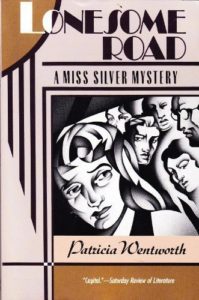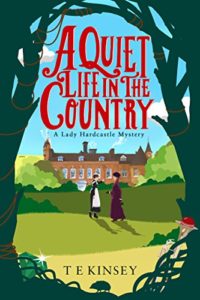
I don’t know why bestsellers are touted so much. Quite honestly, I’ve read a lot of bestsellers that weren’t any better, IMO, then your average mid-lister — and a significant number that, again IMO, were just plain bad.
On the other hand, I’ve read quite a few books that are nowhere near bestseller territory and have found them to be truly superb reads. They actually deserve to be bestsellers.
Then we have the whole idea of just exactly what is a bestseller. The New York Times bestseller list is not a list of actual bestsellers. It’s a curated list compiled from specially selected outlets, with a dash of editorial tampering to make sure the “right” books are on the list.
And then we have all of these awards writers brag about receiving. The Science Fiction Writers of America called out Readers Favorites, for example, as being more or less a scam. Pay your money and get a favorable review. Not in so many words, but it’s not hard to read between the lines.
Kirkus isn’t much better. Indie writers can pay $500 and get a review. No guarantees, but who wants to disappoint a paying customer?
So what does all this have to do with detective novels? Last week I said I’d mention a few authors who are lesser lights in the mystery field. What I want to emphasize here is that being on a bestselling list or being an award winning author essentially means nothing.
Neither awards nor a “bestseller” badge is a guarantee that the book is a good read, or that the author can even tell a good story. We are in subjective territory here. It’s all opinion. Just like the popularity contest known as Homecoming King and Queen in high school. For example, scifi/fantasy writer Patty Jansen delivers a good read and she is not a “bestselling” author – by her own admission. And yet she says she makes a decent income.
In the end, the consumer more or less determines success. Although the crowd is fickle. If Shakespeare hadn’t been able to sell tickets to his plays, we wouldn’t even know he existed. And E L James is laughing all the way to the bank for a novel that is basically poorly written fan fiction.
I repeat: the public is fickle and tastes change. And often change rapidly. George Frederic Handel was knocking it out of the park writing Italian opera for London audiences. They couldn’t get enough. Then, suddenly, almost overnight, Londoners got sick of Italian opera. Handel went bankrupt, then discovered English oratorio, and the rest is history. Messiah and the “Hallelujah Chorus” are ever with us.
Dead – And Shouldn’t Be Forgotten
Jacques Futrelle
When I was a kid, I loved Jacques Futrelle’s The Thinking Machine stories. I still remember “The Problem of Cell 13”, a classic locked room study.
Sadly, Futrelle was only 37 when he went down with the Titanic, telling his wife to save herself. Several Thinking Machine manuscripts also lie at the bottom of the Atlantic.
You can get Tales of The Thinking Machine for free. Well worth reading.
Edgar Wallace
One of the most prolific authors ever, today Wallace is a virtual unknown. In his lifetime, he wrote 175 novels, 957 short stories, 18 stage plays, and reams of news reports (he was a journalist), articles, screen plays, poetry, and historical non-fiction. His works sold over 50 million copies, although few are in print today.
His prolificity was due to his dictating his work onto wax cylinders, the dictaphone of his day, and having his secretaries type the dictations. By dictating, he often produced a novel in 2 or 3 days.
Not finding anyone to publish his first novel, he self-published it in 1905; creating his own publishing company, Tallis Press.
Never heard of him? Does King Kong ring a bell?
Wallace died suddenly, while working on King Kong, in 1932 at the age of 56.
Many of Wallace’s books can be found for free online. One source is ebooks@Adelaide, and there are others. He’s worth checking out.
Patricia Wentworth
Agatha Christie is a towering figure to this day, and Patricia Wentworth had the misfortune to live and write when Christie was in her prime. It’s pretty tough living in the shadow of a towering figure.
However, Ms Wentworth was by no means a hack writer. I think she’s on par with Christie, and the Miss Silver mysteries are as good as Christie’s Miss Marple.
What’s more, Miss Silver is a working woman instead of a gossipy busybody. Miss Silver is a private investigator, the forerunner of Sharon McCone, Kinsey Milhone, VI Warshawski, and all the rest.
Faded Page has all the Miss Silver mysteries, except number 4. And best of all, they’re free!
Ngaio Marsh
Ngaio Marsh is another good mystery author who is obscured by Christie’s long shadow.
Her Inspector Roderick Alleyn was a bit unique in the day, because he’s a police detective. While Christie’s detectives are either private investigators or amateurs, we enter the world of the police procedural with Marsh.
Marsh was also heavily involved in the theater and her novels have a certain theatrical flair to them. They are very much worth reading. Check for them on the used market.
A.A. Fish
A.A. Fish is a pseudonym of Erle Stanley Gardner, another prolific author, best known for Perry Mason.
While Gardner and Perry Mason are household names, Fish, Bertha Cool, and Donald Lam, are not.
The Cool and Lam mysteries are good reads. My only complaint is that Bertha gets short shrift most of the time, which is too bad as I think she is far more interesting than Donald Lam. I think Gardner missed a bet here. He could have had something going like Nero Wolfe and Archie Goodwin.
The books are good nonetheless. Get them on the used market.
Richard & Frances Lockridge
Popular in their day, the Lockridges produced scores of novels, all set in the same world, spread across several different series and characters.
Unfortunately time has not been kind to them, and that is a shame. They were good writers. They’re probably best known for the Mr & Mrs North mysteries.
I like Pam and Jerry a lot. New Yorkers with money (Jerry’s a publisher) and a lot of time on their hands, especially Pam, they get embroiled in some very interesting situations and murders. Pam is the one who mostly helps their friend Lieutenant Bill Weigand solve the crime.
Funny and suspenseful, the books are all around good reads. Pam is a most entertaining female sleuth.
You can find a complete list of all of the Lockridges’s works on GoodOleBooks.
Look for these on the used market. They’re very good.
Phoebe Atwood Taylor
Taylor was on one occasion referred to as the Buster Keaton of the mystery genre.
I’ve only read her Leonidas Witherall series. The man who looks like Shakespeare. Asey Mayo, the “Codfish Sherlock”, is her other and more well-known creation.
The Witherall mysteries are zany fun. Something along the lines of the Keystone Cops in book form. Long on laughs and light on the mystery, they are well worth your time if you want something light and not taxing to read.
Catch these on the used market.
Alive – And Need to be Read
There are a number of writers of the traditional detective story today, featuring either amateur or professional sleuths. I’m not acquainted with them all, but I’ll share a selection of those with which I am.
P.F. Ford
Ford’s Dave Slater and Norman Norman mystery series is dynamite. Full of humor and suspense, as well as the mis-adventures of Slater’s love life, Dave and Norman make the quintessential odd couple.
The books are something of a blend of police procedural and cozy. And while there is plenty of humor, the stories can be on the dark side.
Great books. I’ve read the entire series and am champing at the bit for the next one.
You can pick them up on Amazon.
J.P. Choquette
Tayt Waters is a contemporary private investigator who is quite a colorful character.
The mysteries are funny and suspenseful. Clean reads with a lot of grit and a splash of the dark about them.
There are currently 2 Tayt Waters mysteries, I hope more are in the works. You can get them at Amazon.
J.A. Menzies
Menzies’s Manziuk and Ryan mysteries start off with a bang in a classic country estate murder. Shaded Light: The Case of the Tactless Trophy Wife. Who would have thought there were “country” estates in suburban Toronto, but I guess the rich get it all.
Manziuk and Ryan are another odd couple team police procedural team. Much more at odds with each other than Ford’s Slater and Norman. Their goal is to try and work together as a team.
I enjoyed the Golden Age feel in a contemporary setting of Shaded Light and look forward to reading the other books in the series, which may be found on Amazon.
Ellen Seltz
Ms Seltz writes a classic English-style whodunit, complete with that droll understated British humor and memorable characters.
If that’s your cup of tea, then her Mottley and Baker series is for you. Get them on Amazon.
Summing Up
As I’ve noted before, I prefer the traditional whodunit over the thriller. And while thrillers are all the rage these days, I take comfort in the fact that we do have (myself included) writers who wish to carry on the tradition of the classic detective novel.
While the mystery audience is aging (it can be a bit disconcerting to a writer to see your audience dying off), I find hope in younger characters, such as Tayt Waters entering the fray; or mixed race teams such as Manziuk and Ryan, making their appearance; and the contemporary issues Slater and Norman deal with. This approach will help to make the traditional mystery more relevant to a younger audience.
The western died off quickly. But now with the indie revolution, I see the western making a comeback. Not dependent on the bottom lines of big corporations, indie authors can write what they love and target very specific audiences.
While the mystery isn’t dead by any means, I see hope that, like the western, indie authors will give this venerable genre a continued lease on life. And who knows? Tomorrow the thriller just might be passé.
Comments are always welcome! And until next time, happy reading!
Share This!

 CW Hawes is a playwright, award-winning poet, and a fictioneer, with a bestselling novel. He’s also an armchair philosopher, political theorist, social commentator, and traveler. He loves a good cup of tea and agrees that everything’s better with pizza.
CW Hawes is a playwright, award-winning poet, and a fictioneer, with a bestselling novel. He’s also an armchair philosopher, political theorist, social commentator, and traveler. He loves a good cup of tea and agrees that everything’s better with pizza.
